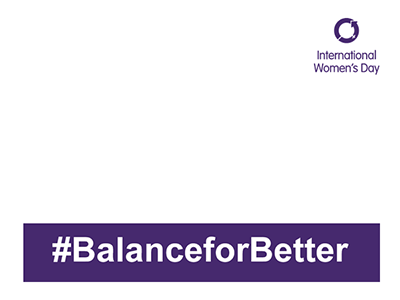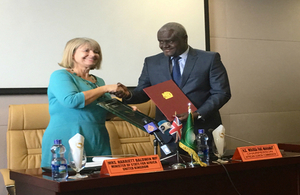-By Funmi Falobi-
“No country can ever truly flourish if it stifles the potential of its women and deprives itself of the contributions of half of its citizens.”
This quote by Michelle Obama, former First Lady of the United States of America is so apt and reveals the importance of having good representation of women in governance.
There is no gainsaying that world over; women are being marginalised and under-represented in governance. While women continue to make almost half of the population, governments across the globe have not seen the reason why women should be given chance to lead politically and contribute to the socio-political economy of the world.
While some countries are adjusting, the rate of modification is slow. Research reveals that with only 19.3 percent female representation in the House of Representatives and 23 percent in the Senate, the United States currently ranks 103rd in the world in terms of women’s representation in national legislatures. However at the top of that list is Rwanda, an African country where women make up 61.3 percent of the lower house and 38.5 percent of the upper house. Bolivia follows with 47.2 percent women’s representation in the senate.
In order to ensure gender parity in every sector as well as in politics, the United Nations has set aside March 8 as International Women’s Day to address issues affecting women and proffering solutions. This year has as its theme, “Balance for Better.”
This implies that the world must strive to ensure balance of women representation in politics as well as other sectors by ensuring more women are at the top of their careers and a good number of women are in governance.
In Nigeria, the number of women in politics in 2019 dropped from what it obtained in 2015. As the nation conducts its 2019 elections, research shows that there are fewer women that would constitute the new tenure come May 29. In fact, the deputy governors’ position given to women in some of the States including Lagos State, the commercial nerve of the country has been taken away as the State, under the ruling All Progressive party, has adopted male-male governor/deputy governor ticket.
Having women as deputy governors has helped in promoting issues of women and serve as encouragement to women to attain political leadership. Similarly, the number of women in the 2019 House of Assembly also dropped.
Speaking on the trend, Dr. Franca Attoh, Department of Sociology, University of Lagos said women are grossly under-represented in politics and they should refuse to be choristers.
“About 51 percent of women are involved in voting during elections but women are grossly underrepresented in elective and appointive positions. Women constitute only 27.7 percent of senior positions in the civil service. In Lagos State the number of women in elective positions has dropped and the deputy governor that they use to give us has been taken away. Unfortunately, there is no female civil society organisation (CSO) or non-governmental organisation (NGO) that has brought this to the front burner.
“This year we have three women at the State house of assembly out of seven candidates in 2015. Women should be prepared and refused to be choristers. It’s a structural thing. Women should reject some of these things,” she said.
She explained that the underrepresentation of women in politics and governance is as a result of patriarchy, saying, “The political parties share the blame because party structure and function have been designed to disenfranchise women. Money politics, thuggery and nocturnal meetings are some of the factors that militate against female participation in politics.”
Meanwhile, Professor Abigail Ogwezzy-Ndisika, Head of Department, University of Lagos noted that though attaining better balance for women with their male counterparts in politics is a tall order, but it is achievable. According to her, women have to square up but need the structure to grow.
“The political terrain is very murky. There are more women in politics, but the men are more visible. Every position women take, men lose. There is phobia of dominance because women are good at what they do. We need to take the advantage of our number as women.
There must be a deliberate attempt by political parties to have more women in political positions. It’s not going to be a 100 meter dash but a marathon for women. We must begin to ask for affirmative action.
“Now, women are working for men, participate as mobilisers and voters and not to be voted for. NGOs should also ask for affirmative action from the states, federal governments for women and children; we must push. There must be deliberate, strategic approach, we must work with all. The time to do it is now,” she said.
To Lanre Arogundade, Director, International Press Centre, the entire society needs to wake up to the reality that more women are needed in elective positions.
“If we all realise it, we can put pressure. If political parties don’t adopt affirmative action, there’s no how we can have more women in politics. Political parties are the main target of the advocacy. The big parties usually ask women to pay lots of money and that’s why they go to some of the small parties. High level of commercialisation in big political parties in Nigeria need to be addressed, this makes women vulnerable. Also, the public must have positive attitude towards women, have courage to vote for women and give women the chance to serve,” he said.
In a related development, Arogundade in a statement to commemorate the 2019 women’s day also said it was imperative that Nigerian women, who accounted for about 47 per cent (39,598,645 million) of the 84,004.084 million registered voters nationwide are adequately mainstreamed into governance structure to give them adequate representation and balancing of the affairs of governance, especially as the preliminary outcomes from the February 23, 2019 National Assembly elections indicates that very few women were elected.
“It is saddening that the outcome of the February 23 national assembly elections has shown that the women have lost out, in increasing their tally in the National Assembly. Against the present eight National Assembly which has a combined membership of 469, consisting of eight female senators and 15 female House members, it is worrisome that the ninth National Assembly to be inaugurated in June, will only have six female senators-elect and 13 female House members-elect”, This is not too good for a robust and gender friendly legislative process. We are therefore calling on stakeholders to galvanize actions to engender women in appointive positions even as it is hoped that the electorates would be disposed to vote women in the March 9 governorship and state assembly elections”, Arogundade noted.
He added: “There is no better time to ensure gender inclusion than now, as women continue to face all forms of discrimination and challenges in their quest to contribute their quota to the development of society. It is hoped that in view of this year’s theme, there would be greater consolidation of efforts by stakeholders to ensure that women have priority considerations in appointive positions, so that they are not left behind and are able to contribute their quota in the schemes of affairs of our democratic and social polity”
Meanwhile, Ada Agina-Ude, Executive Director, Gender and Development Action, noted that affirmative action of 35 percent only exist on paper. According to her, every party claim in their manifesto to have it for women but at the end of the day, instead of helping women they turn around. She however said there is a very small improvement.
“At the rate we are going, we don’t know when we will get there. Countries that have affirmative action don’t use the electoral system we have here. We have done advocacy, but we need to get it through legislative or executive. All the ministries have gender policy including the security agencies while some are still working on it. Policy is a policy, not a law. May be it is affirmative action we are waiting for. I think it should be legislated at the political party level so the parties can have agreement to give women chance or if it is part of our constitution,” she said.



